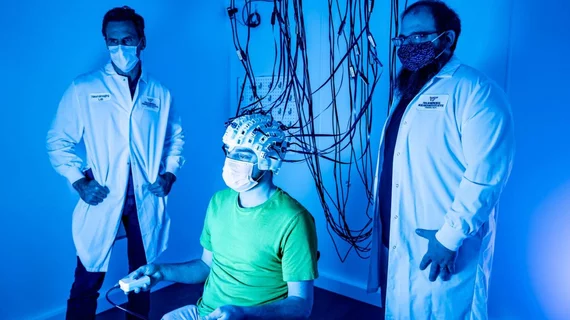New brain imaging lab takes people outside cramped MRIs for face-to-face research
Virginia Tech scientists are launching a new brain imaging lab that they say will open up new doors within neuroimaging research, the university announced Thursday.
The Blacksburg, Virginia, school received a $2.4 million grant from the National Institutes of Biomedical Imaging and Bioengineering for their project.
VT’s Fralin Biomedical Research Institute will use wearable optically pumped magnetometry devices to measure brain signals in real-time while volunteers perform various tasks. It’s been historically difficult to gather such data while patients are crammed into noisy MRI machines, the researchers explained.
"We're giddy to get people outside of magnets and into a setting where we can study social interactions, humans of all ages and sizes, and people in motion with fewer environmental limitations," principal investigator Read Montague, PhD, director of the institute’s Center for Human Neuroscience Research, said Thursday. "We've never had the ability to make such sensitive direct magnetic measurements, and now we're applying this transformative technology in the social domain."
Optically pumped magnetometers are highly sensitive, picking up signals nearly 1 billion times smaller than the Earth’s magnetic field. Montague and co-investigators will use software to visualize which brain regions are activated during certain tasks.
It will be the first time anyone has analyzed two brains simultaneously using this technology, according to Virginia Tech.
“Our investment in human magnetometry positions Virginia Tech to unlock previously unrealized potential for gaining new insights into healthy brain function and a range of brain disorders that impact children and adults," Virginia Tech’s Vice President for Health Sciences and Technology Michael Friedlander said in a statement.

